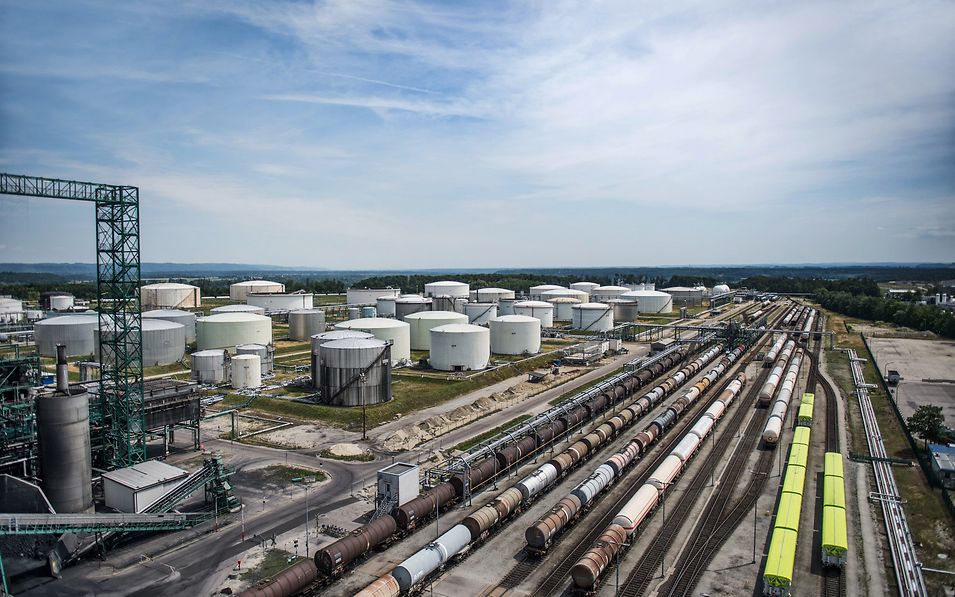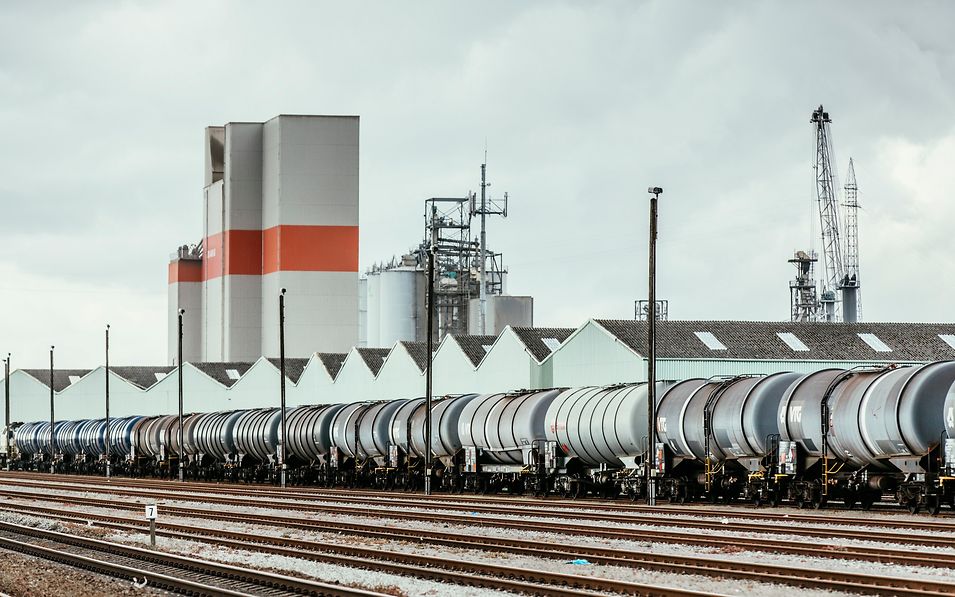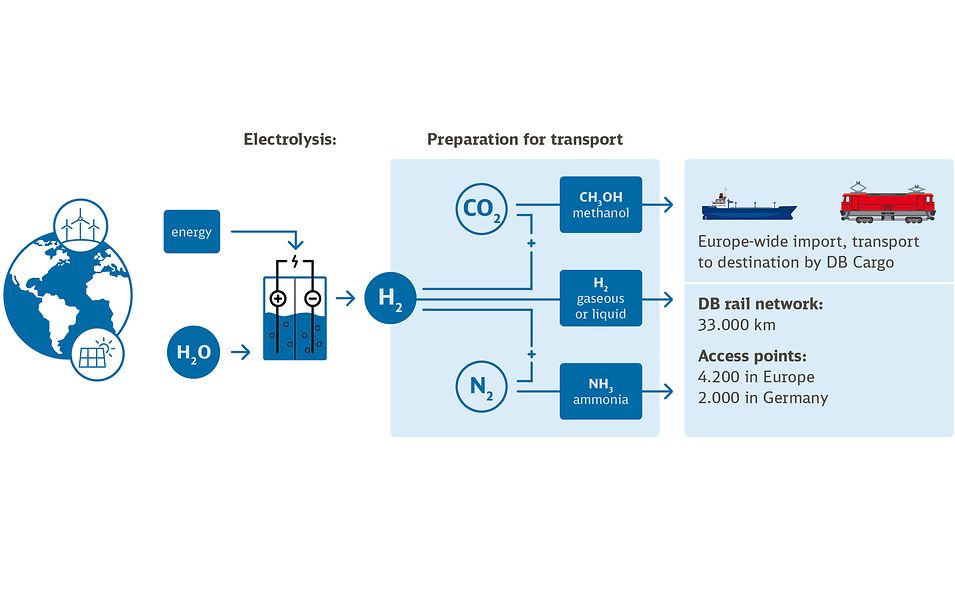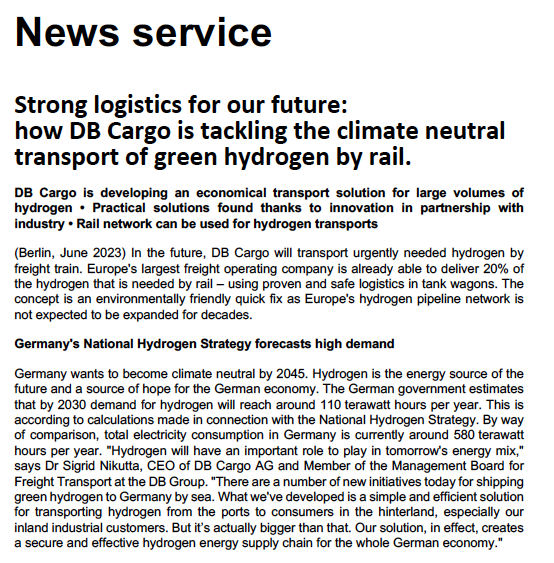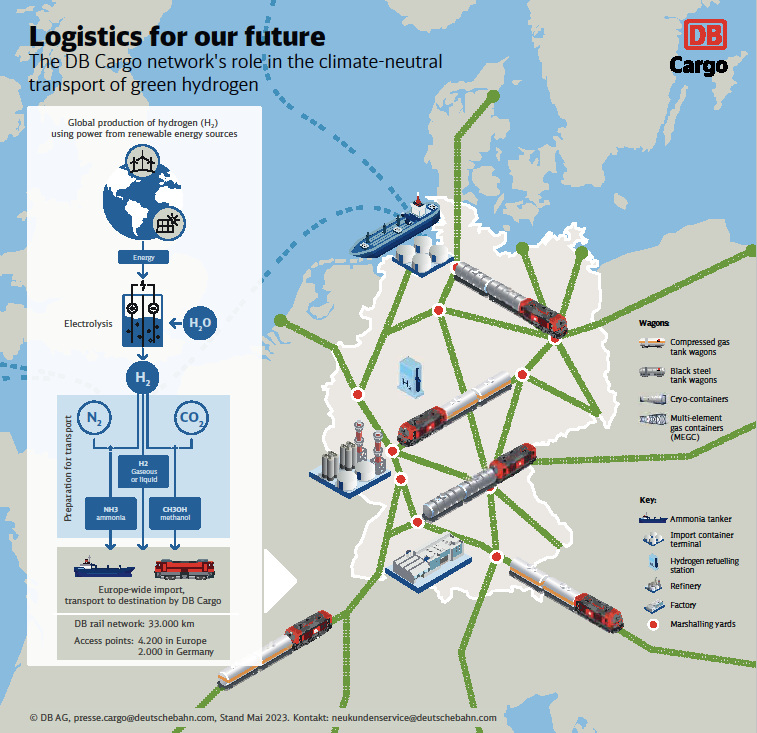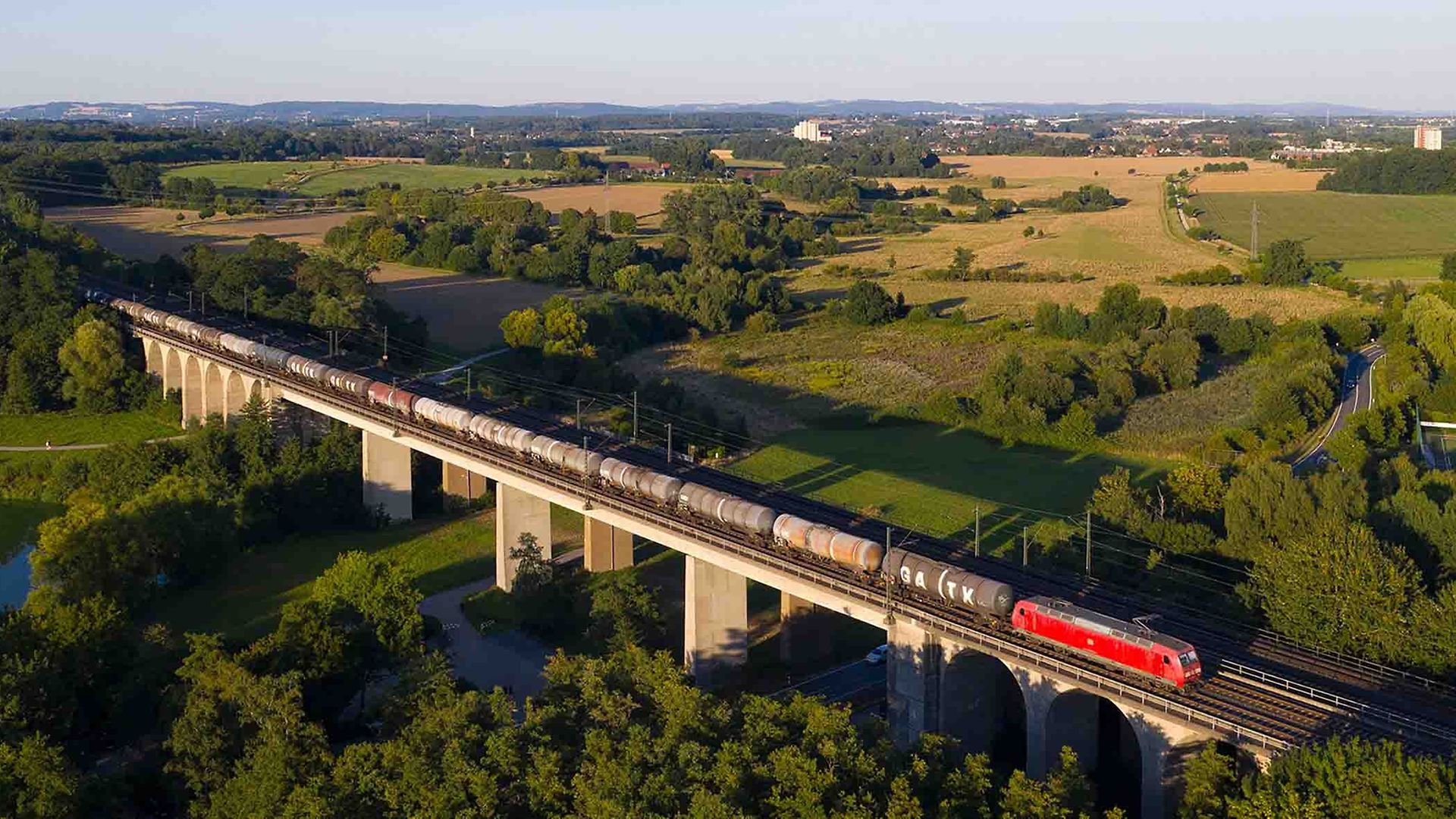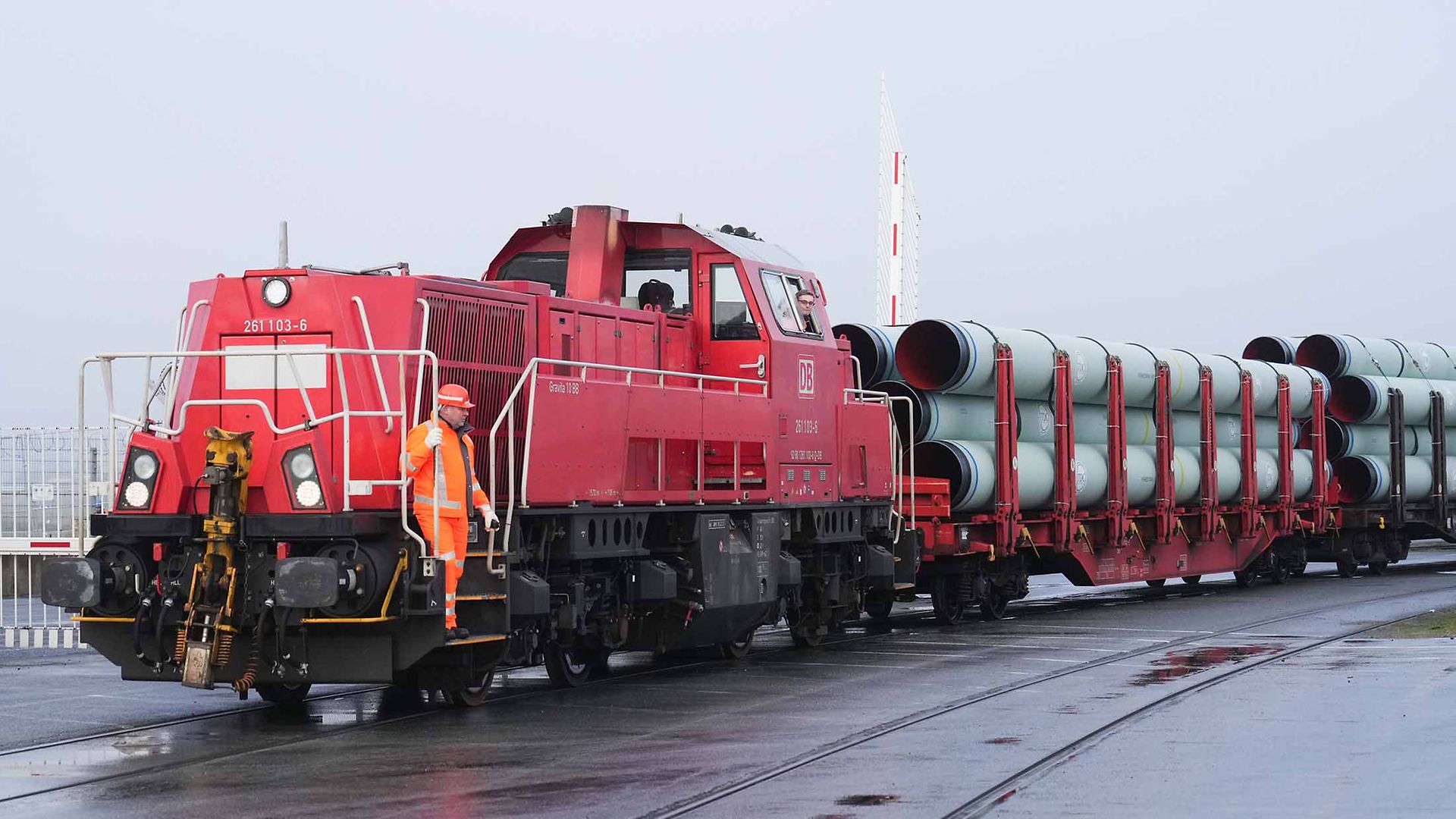DB Cargo develops an efficient solution for transporting large volumes of hydrogen
Practical solution thanks to cooperation and innovation together with industry • Rail network can be used for transporting hydrogen
As Europe's largest freight operating company, DB Cargo is already able to deliver 20% of the hydrogen that is needed by rail – using proven and safe logistics in tank wagons. The concept is an environmentally friendly quick fix as Europe’s hydrogen pipeline network is not expected to be expanded for decades.
Germany's National Hydrogen Strategy forecasts high demand
Germany wants to become climate neutral by 2045. Hydrogen is the energy source of the future and a source of hope for the German economy. The German government estimates that by 2030 demand for hydrogen will reach around 110 terawatt hours per year. This is according to calculations made in connection with the National Hydrogen Strategy. By way of comparison, total electricity consumption in Germany is currently around 580 terawatt hours per year. "Hydrogen will have an important role to play in tomorrow's energy mix," says Dr Sigrid Nikutta, CEO of DB Cargo AG and Member of the Management Board for Freight Transport at the DB Group. "There are a number of new initiatives today for shipping green hydrogen to Germany by sea."
In the DB Cargo network
"What we've developed," Nikutta continues, "is a simple and efficient solution for transporting hydrogen from the ports to consumers in the hinterland, especially our inland industrial customers. But it’s actually bigger than that. Our solution, in effect, creates a secure and effective hydrogen energy supply chain for the whole German economy. The rail network in Germany is eco-friendly, and it is over 35,000 kilometres long. DB Cargo alone serves more than 2,100 interfaces, customer sidings, container terminals and inland ports. Green hydrogen needs green logistics – and that's what we offer," Nikutta adds.
DB Cargo is ready to supply the equivalent of around 20 terawatt hours by rail, which corresponds to approximately 20% of the estimated hydrogen demand by 2030. Transporting hydrogen by rail is a competitive alternative to the pipeline, which has not even been built yet. Rail has a decisive advantage over transport by road as it is a much more environmentally friendly option. One train can replace up to 52 HGVs, saving between 80% and 100% of CO2e compared to road transport.
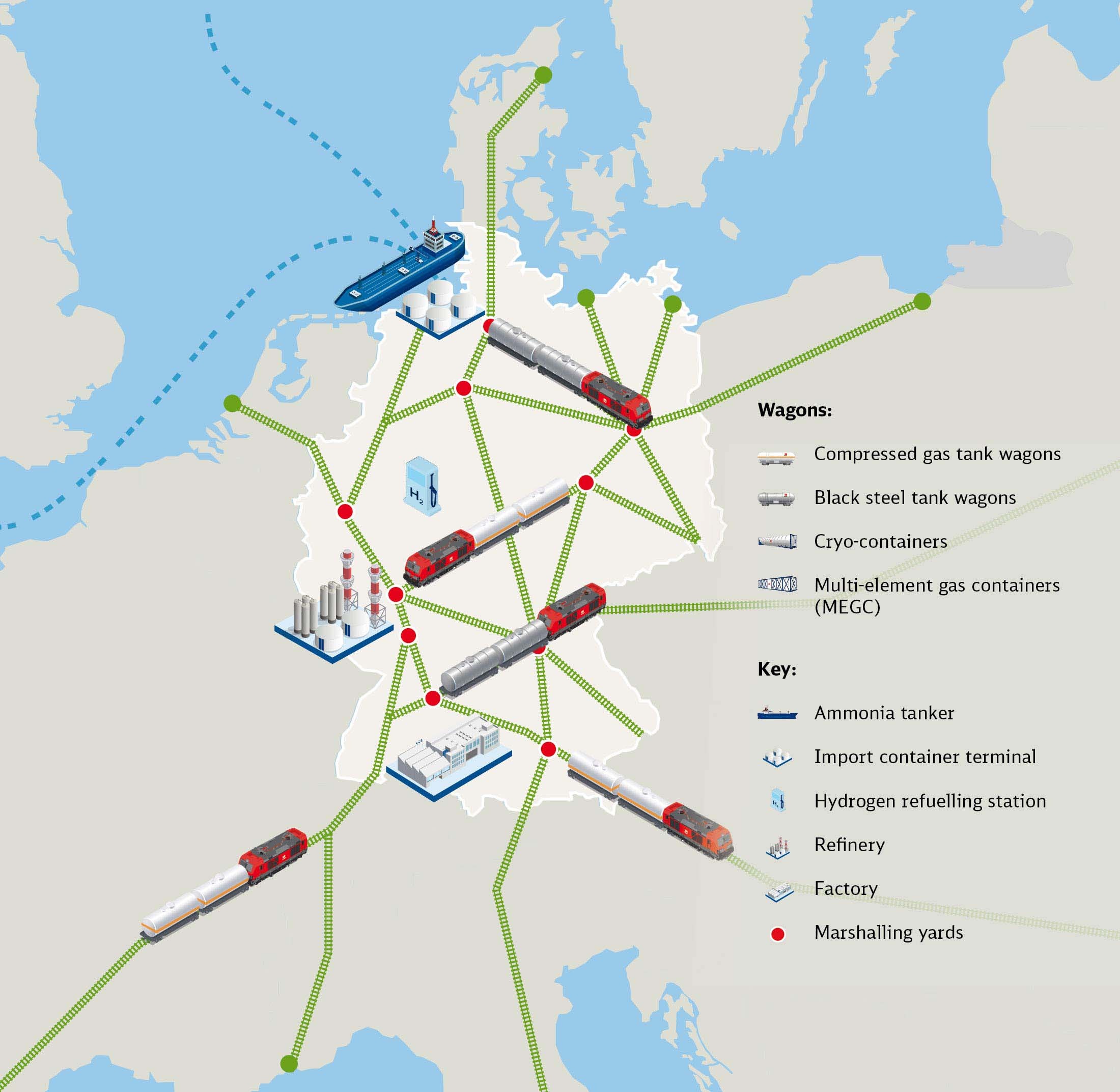
Hydrogen belongs on the rails
Green hydrogen is produced by electrolysis using renewable energy. However, it cannot always be produced where it is needed. That's why this calls for practical logistics solutions. Green hydrogen is produced primarily in regions with plenty of wind, sun and water and then exported to all regions of the world. Hydrogen imported into Germany is usually not in the form of gas, but bound in chemicals. It is therefore easily and efficiently transported by sea. DB Cargo has been working with energy suppliers to develop a concept for transporting hydrogen to consignees based far from seaports. Leaving hydrogen bound in liquid form allows conventional tank wagons to be used for rail freight transport. These are already widely used in the chemical industry. The cargo isn’t “cracked” back into its components, separating out the hydrogen, until it reaches the place where it will be used as an energy source.
Special containers for transporting pure hydrogen
DB Cargo is also involved in the development of innovative hydrogen containers and is testing the logistics of pure hydrogen. This solution is useful for the small-scale distribution of pure hydrogen to decentralised customers and users such as hydrogen refuelling stations. Gaseous hydrogen can be transported under high pressure in special multi-element gas containers (MEGCs). DB Cargo is also in charge of organising the delivery of DB Regio's hydrogen trains, which are currently being tested in operations on different lines. Transporting cryogenic liquefied hydrogen is just as complex as transporting gaseous hydrogen. Due to the extremely low temperatures involved (around -253°C), special containers are also required for this. DB Cargo is involved in a wide range of hydrogen logistics solutions. Europe's largest freight operating company is also a partner in H2 Reallabor Burghausen/ChemDelta Bavaria, a non-profit company in Bavaria's chemical triangle. The technology of the future, hydrogen, is being tested here in the tough everyday industrial environment.
DB Cargo's hydrogen transport wagon gallery
More articles about hydrogen and fuel in DB Cargo Logistics News
Your contact for questions
Bjarne Regenbrecht
Project Manager Hydrogen Logistics, DB Cargo BTT
